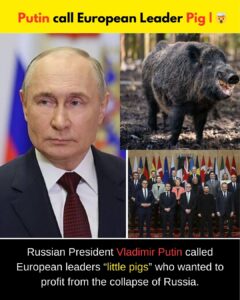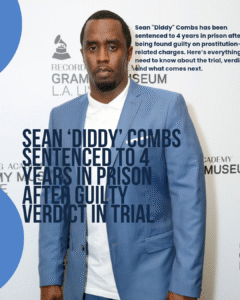Shocking Overreach: Trump’s Executive Order ‘Reeks of Unconstitutionality’ and Sparks Legal Firestorm”
‘Reeks of Unconstitutionality’: TrumpExecutiveOrder Controversial Executive Order Sparks Legal Battle
In a move that has stunned the legal community and drawn widespread criticism, former President Donald Trump issued an executive order that many legal experts claim violates constitutional principles. The order appears to target the law firm Jenner & Block, sparking an intense legal fight that could have significant implications for the balance of power between the executive branch and private institutions.
District Judge John Bates, presiding over the case, did not mince words. In his analysis, he questioned whether the executive order had any legitimate government purpose or if it was simply punitive. Legal professionals across the country are calling the order “a clear overreach” and warning that it sets a dangerous precedent.
The Background: What Triggered the Controversy? TrumpExecutiveOrder
At the heart of the issue is Jenner & Block, a prominent law firm that previously employed Andrew Weissmann, a former member of Special Counsel Robert Mueller’s investigative team. Weissmann played a critical role in the Russia investigation, which Trump has long criticized as a politically motivated “witch hunt.”
Trump’s executive order places severe restrictions on Jenner & Block and several other firms, including limitations on their access to federal contracts and even physical access to government buildings. While the administration claims the move was about safeguarding national interests, critics argue it’s a thinly veiled attempt to punish the firm for its associations and past legal actions against Trump allies.
Judge Bates Weighs In TrumpExecutiveOrder
Judge Bates, in a recent court hearing, made it clear that he viewed the order as highly suspect. He pointed out that the executive order seemed more designed to intimidate and financially harm Jenner & Block than to serve any public interest.
Bates said, “Isn’t it logical that clients would be hesitant to work with Jenner & Block if they believe the firm could be cut off from federal access at any time?” He emphasized that the practical effect of the order is to isolate and damage the firm’s business operations—actions that are arguably unconstitutional.
Legal Experts Cry Foul TrumpExecutiveOrder

Legal scholars and civil rights organizations have rallied to the firm’s defense. Michael Attanasio, a leading attorney representing Jenner & Block, has been vocal in his opposition. “This order isn’t about national security or law enforcement—it’s about political revenge,” he said. “It punishes a law firm for who it has worked with and what it stands for.”
Attanasio further stated, “All we need to do is read this thing. It reeks of unconstitutionality. It should be set aside in its entirety.”
These remarks have resonated with many in the legal field, who see the executive order as part of a broader pattern of using presidential power to settle personal scores—something that should be completely off-limits in a democratic system.
Broader Implications
This case is more than just a dispute between a law firm and the federal government—it’s a test of the Constitution. The executive order raises key questions: Can a sitting or former president use the machinery of government to punish critics? Where is the line between national security and personal vendetta? And who decides when that line is crossed?
If this order stands, it could create a chilling effect on law firms and other organizations that consider taking legal action against powerful political figures. In a democracy, access to fair legal representation should never be weaponized.
Temporary Relief, but Uncertainty Remains
The court has already issued a temporary halt to the enforcement of the order, giving Jenner & Block and other firms a brief reprieve. However, a request for a permanent injunction is still pending. The decision could take weeks or even months, during which time the firms involved remain in limbo.
Some law firms have chosen to negotiate with the administration to avoid further action, but these backdoor agreements have raised even more questions. Lawmakers like Virginia Representative Gerald Connolly and California Representative Dave Min have demanded full transparency regarding these negotiations.
Political Fallout
This case is also generating considerable political fallout. Critics of Trump see the order as further proof of his disregard for democratic norms. Supporters, however, argue that the president has a right to protect national interests—even if that means targeting entities that once challenged him.
With the 2024 election season heating up, this legal battle is likely to become a talking point for both parties. For Democrats, it underscores the need for stronger checks on executive power. For Republicans, it may serve as a rallying cry for loyalty to Trump and his policies.
Why This Matters for Everyday Americans
While this may seem like a high-level legal squabble, the implications for ordinary citizens are real. The U.S. legal system is built on the principle of impartiality. If the government begins punishing firms simply for doing their job—representing clients who happen to be politically controversial—then the very concept of justice is under threat.
Think about it this way: If law firms fear political retribution, will they still be willing to take on tough cases? Will whistleblowers or public interest groups have access to high-quality legal counsel? These are questions that affect all of us, not just the legal elite.
A Constitutional Crossroads
As the case moves forward, all eyes will be on the federal courts. The ruling could either reinforce long-standing constitutional protections or open the door to new levels of executive overreach. For now, the legal community is watching with bated breath—and preparing for a battle that could define the boundaries of presidential power for years to come.
This isn’t just about one law firm. It’s about the integrity of our justice system, the limits of executive authority, and the ability of legal institutions to stand up to political intimidation. Whatever the outcome, this case is bound to leave a lasting mark on American law and politics.
#TrumpExecutiveOrder #JennerAndBlock #LegalNews #ConstitutionalLaw #ExecutiveOverreach #USPolitics #JusticeSystem #FederalCourt #LawFirmTargeted #FreeSpeech #RuleOfLaw #UnconstitutionalOrder #AndrewWeissmann #MuellerInvestigation #DemocracyUnderThrea











Post Comment